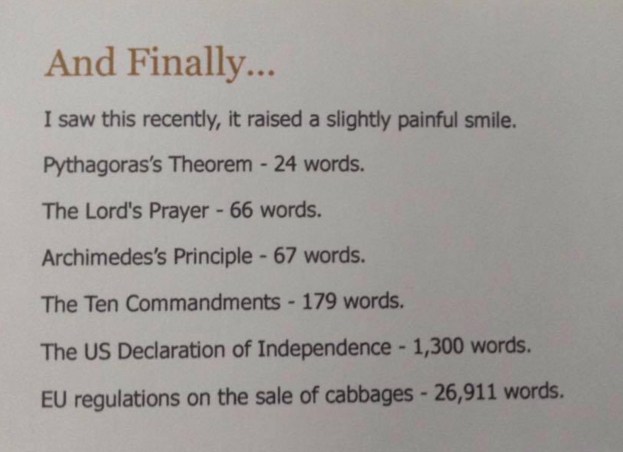
Was the UK voting for Brexit a surprise? If so, it’s because we were oblivious to what has been going on with people for some time now. Lord Ashcroft’s survey shows us the UK electorate is deeply divided, but it is not primarily related to gender, generation or geography (Scotland and N. Ireland notwithstanding).
There is a cultural great divide in the UK, and elsewhere in the world that is revealed in the responses below:

By large majorities, voters who saw multiculturalism, feminism, the Green movement, globalisation and immigration as forces for good voted to remain in the EU; those who saw them as a force for ill voted by even larger majorities to leave. How the United Kingdom Voted and Why
So it is fair to say Brexit is also a repudiation of EU climate and energy policies, as explained here.
As for this phenomenon elsewhere, you must have also noticed a striking resemblance:


And the similarities extend to statements and soundbites:
There may be all kinds of reasons why I was sweating at ping-pong – but they don’t include global warming.
It is fantastic news that the world has agreed to cut pollution and help people save money, but I am sure that those global leaders were driven by a primitive fear that the present ambient warm weather is somehow caused by humanity; and that fear – as far as I understand the science – is equally without foundation. Boris Johnson (here)
We’re going to cancel the Paris agreement and stop all payment of U.S. tax dollars to global warming programs.”
“We’re going to deal with real environmental challenges, not the phony ones we’ve been hearing about. . .My priorities are very simple: clean air and clean water. Donald Trump (here)
Make no mistake: Both these gentlemen are unconventional and disruptive characters. Boris will face much resistance to his replacing Cameron. And Donald cannot be trusted to be a reliable Republican conservative, as Paul Ryan well knows.
Both are and will be denounced as “populists”, even “rabble-rousers”. Those and other such terms are always used by the elite whenever someone not in their club gains a following, becoming a political threat to those in power.
Reminder: Marx defined ideology as the set of ideas by which the ruling class maintains their power over the population. In an insightful essay (here), William Briggs sees the Brexit result as reminding us that democratic voting is inherently destablilizing. Because the hoi polloi can not be trusted to think as the establishment wants.
To the Republicans’ chagrin Trump is the one who consolidates the widespread resentment against the leftist, politically correct, authoritarian elite personified by Hilliary Clinton. In the same way Johnson was the face of the Brexit campaign victorious against the faceless EU bureaucracy.
Update June 28
Julie Burchill writes at the Spectator about the UK cultural divide, and describes the two sides as Ponces (Remainers) and Non-Ponces (Leavers). Apparently Brits use the verb “ponce” in two senses:
1. ponce around
British informal. Behave in an affected or ineffectual way:
‘I ponced around in front of the mirror’
2. ponce something up
British informal. Make overly elaborate and unnecessary changes to something in an attempt to improve it:
‘They would not let the food alone, they had to ponce it up in some way or other.’
The article is hilarious: http://blogs.spectator.co.uk/2016/06/brexit-divide-wasnt-young-old-ponces-non-ponces/

h/t American Elephants
The global collapse caused by Bush GOP asset forfeiture as prohibition enforcement (and its exportation) has, I hope, made people realize that paranoid looter kleptocracy and State of Fear is NOT the way to go.
LikeLike
I agree with the last part. Don’t understand “prohibition enforcement (and its exportation)”. Are you referring to the doctrine of preemptive war
LikeLike
No. I was referring to how prohibitionism uses taxes as enforcement and destroys the economy, as in 1929-32, 1987, 1998, 2007. But back on topic, Brexit, here’s a question:
How many EU member countries were NOT collaborators or conquered by Nazis in the 40s?
LikeLike
Great post, Ron. The game is afoot, to paraphrase the Bard.
LikeLike
Reblogged this on TheFlippinTruth.
LikeLike
Thank you for your excellent analysis of BrExit. Democracy was the winner, in a resounding defeat of totalitarian rule.
LikeLike
It was like watching an entire population rouse itself from the Stockholm Syndrome. How Britain went for Internationalsocialism in the first place is a mystery to me. It was Germany that tried to exterminate semitic folk, and may have some guilt driving its suicide-vest wilkommen policies. But Britain was on the good side of that war and the Nuremberg trials are done with.
LikeLike
Thank you for carefully explaining just how awful the EU is to the UK. This is often missed or simply ignored. Could you please also explain why there is no hurry now to leave?
LikeLike
The short answer is: The UK politicians in power were all committed to remain. None of them want the responsibility to carry out the Brexit mandate.
LikeLike
BTW, I never said the the “EU was awful to the UK”; I merely pointed out the perceptions behind the voting patterns. I believe that voters expressed a rejection of the EU political union aspiration, and only wanted in the EU for the market participation, period.
As for moving forward, the UK parliament could enact legislation enabling Brexit, but clearly these MPs won’t do it. The UK government machinery that should be planning and preparing for the separation was idle all this time because its leaders could not imagine this result. AFAIK only the Bank of England planned for this contingency. Perhaps Governor Carney, being Canadian, was more astute about matters of separations.
LikeLike